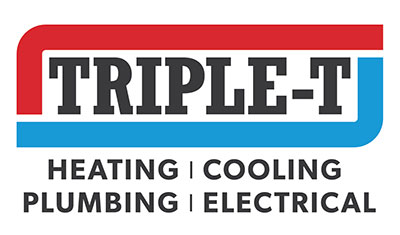How to Remove Hard Water Stains
If your once-bright faucets, tubs, or glass shower doors are now dull and dingy, hard water could be to blame. Utah, among other places, has hard tap water, meaning it’s high in mineral content. Drinking hard water won’t hurt you, but calcium and magnesium deposits are left behind when the water evaporates. The resulting white, chalky residue can be difficult to remove. Fortunately, with these tips for removing hard water stains, your fixtures, tiles, and glass will shine like new in no time.
How to Remove Hard Water Stains with Homemade Cleaners
If you allow hard water marks to sit for months, they may become permanent. That’s why you should make cleaning hard water stains a regular household chore. Here are five homemade cleaners to try.
White Vinegar
Safe, non-toxic white vinegar belongs in every cleaning cabinet. It works by breaking down the minerals left behind when hard water evaporates.
Mix one part water with two parts vinegar in a spray bottle. Thoroughly coat the stained area and let the vinegar work for five to 15 minutes, reapplying as needed to prevent the vinegar from drying. For large surfaces like shower doors, drench paper towels in diluted vinegar and paste them to the glass. This keeps the area wet for the recommended time without spraying it constantly.
Scrub the surface with an old toothbrush or terry cloth towel, depending on the size of the treated area. Repeat as needed until the hard water stains disappear. Dry with a clean, microfiber cloth for spotless results.
Lemon Juice
This is another natural yet powerful cleaner used for removing hard water stains. Lemons are acidic and can therefore break down mineral buildup.
Spray lemon juice on hard water stains and allow it to sit for 10 minutes. Keep in mind that freshly juiced lemons are much more effective than bottled juice. You can also cut a lemon in half and rub it over the affected area. Scrub, rinse, and dry the area with a towel.
Baking Soda
Baking soda works similarly to vinegar. However, it’s important not to use the two together. Vinegar is an acid, and baking soda is a base, so combing them nullifies both of their cleaning powers.
To remove hard water stains with baking soda, first combine it with water until it forms a paste. Then, cover the affected surface and let it stand for several minutes. Scrub the area with a soft-bristled brush and finish by rinsing with water and drying with a towel.
Hydrogen Peroxide & Cream of Tartar
Don’t underestimate the cleaning power of hydrogen peroxide. While it may be potent enough on its own, you can boost its effectiveness by combining it with cream of tartar, an acidic substance similar to baking powder. Apply the hydrogen peroxide/cream of tartar paste to the stained area. Let it sit for up to 30 minutes, and then scrub with a damp sponge to reveal the results.
Fluoride Toothpaste
If you want to clean a small stained item, such as a faucet or glass dishware, try applying toothpaste. The fluoride has brightening and stain-removing effects, while the abrasive texture boosts its scrubbing power.
How to Remove Hard Water Stains with Commercial Cleaners
If you try the above homemade methods without success, you may need something a little stronger. Tackle the most stubborn hard water marks with the following commercial products.
Comet, Steel Wool & SOS Pads
These abrasive cleaners are all capable of removing hard water stains. They work best on small areas since they require active scrubbing to lift mineral deposits.
All-Purpose Cleaners
Non-abrasive cleaners like 409 are safe for most plumbing fixtures and can be used to remove hard water if the deposits have not accumulated heavily.
Lime-A-Way & CLR
These products remove hard water stains, rust, and lime buildup. Because they contain heavy-duty acids, they should only be used in small quantities, such as around a drain or on a faucet. Plan to wear eye and hand protection when handling these cleaners.
Phosphoric Acid, Hydrochloric Acid & Sulfuric Acid
These strong, corrosive chemicals are excellent for removing hard water stains on a large scale, such as in a hot tub or swimming pool.
Install a Water Softener to Avoid Hard Water Stains
If you’re tired of hard water marks reappearing just days after you scrub them off, you’re not alone. Hard water is a common culprit across the country, including in Utah. That’s why so many homeowners choose to install a whole-house water softener.
Hard water doesn’t just leave annoying stains on your metal faucets and glass shower doors—it also makes your water less useful. Soap doesn’t lather as effectively, your dishes and clothes don’t come as clean, and your skin and hair feel rough and brittle after showering in hard water. Your plumbing appliances, fixtures, and pipes may even have a shorter lifespan when constantly subjected to the wear and tear of mineral deposits. Plus, a lot of people don’t like how hard water tastes.
All of these problems disappear with a water softener. This device hooks directly into your plumbing, removing magnesium and calcium from your tap water through a process called ion exchange. The minerals in hard water are exchanged for sodium ions, leaving your water softer, better-tasting, and easier to use throughout your home.
If you’re interested in adding a water softener to your Utah home, Triple T Heating, Cooling & Plumbing can get you set up. We also repair existing water softeners to keep your plumbing running smoothly. With nearly five decades of experience, you can trust our knowledgeable team to recommend the products and services you need at a competitive price. We’re also fun and easy to work with, bringing a can-do attitude to every job we approach.
To learn more about eliminating hard water stains with a water softener, or to request an installation estimate in Utah County, please call Triple T at 801-798-7711 or contact us online today.


